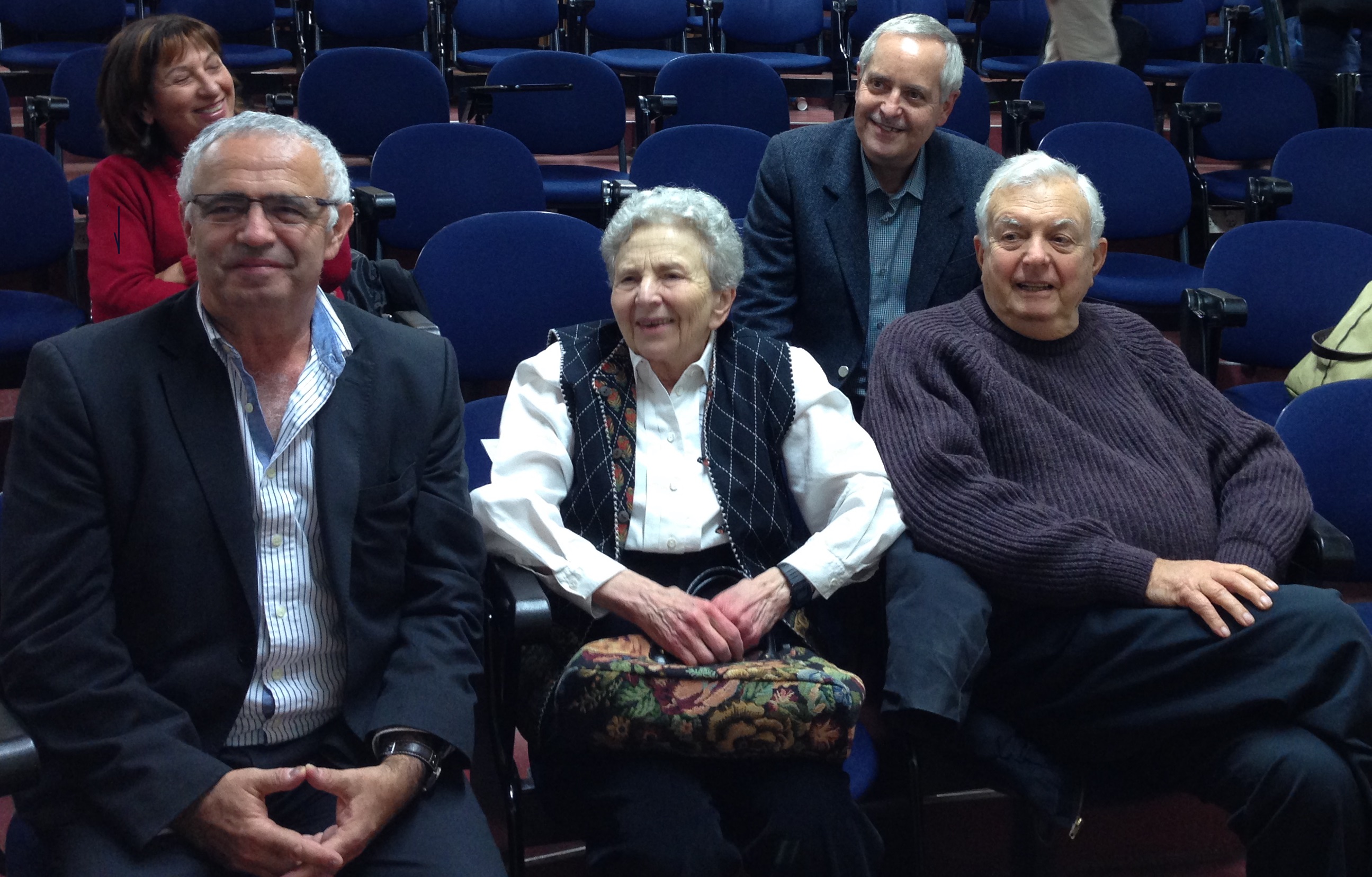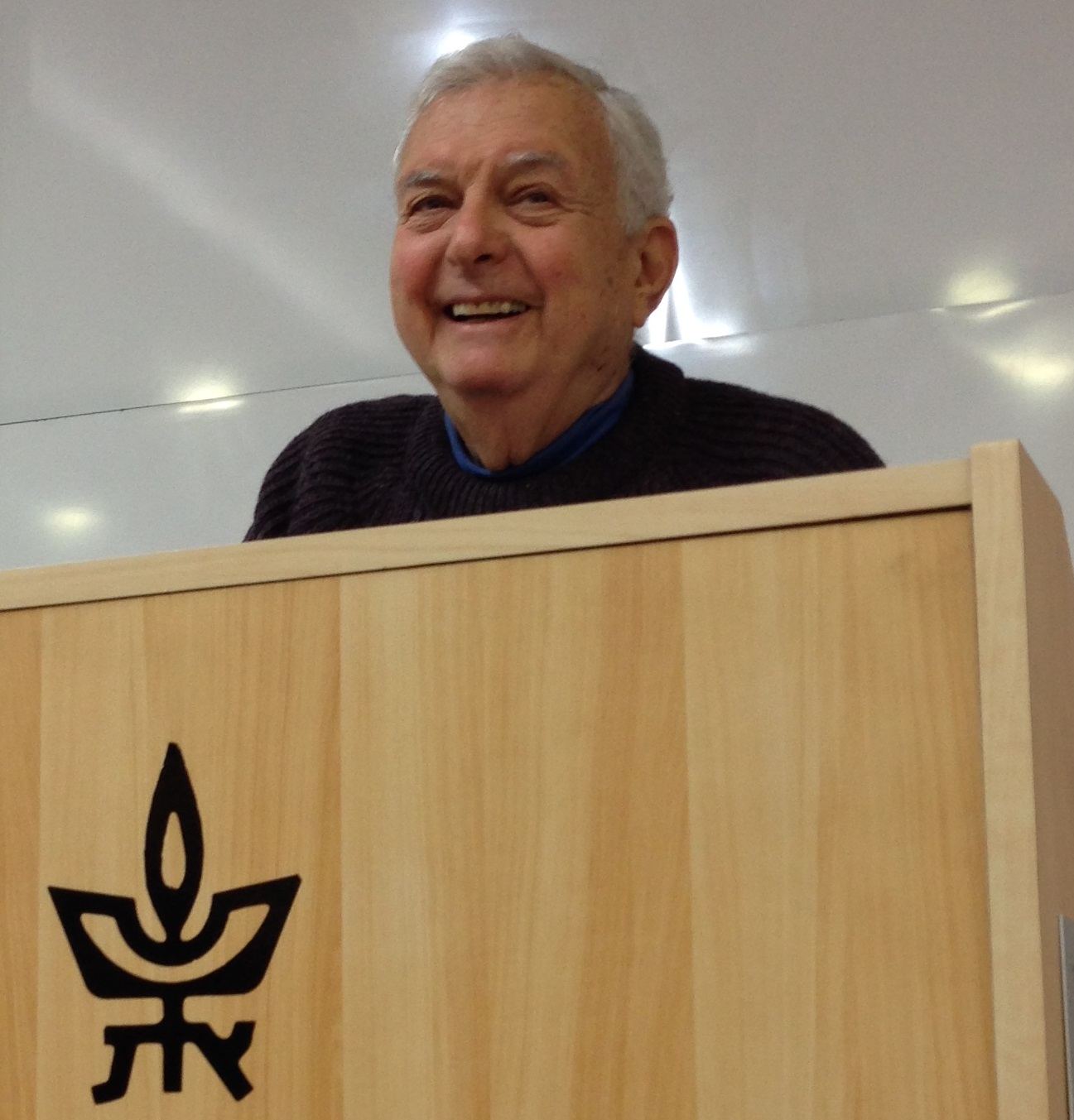In Memoriam: Dr. John B. Robbins
A message from Prof. Dani Cohen, Acting Head of the School of Public Health, upon the death of Dr. John B. Robbins, world-renowned scientist and friend of TAU-SPH.
Dr. John Robbins was a prominent physician-scientist with a long career at the Eunice Kennedy Shriver National Institute of Child Health and Human Development (NICHD) in the United States, where he was chief of the Laboratory of Developmental and Molecular Immunity. He arrived at the NIH in 1970 as the first clinical director for NICHD. From 1974 to 1984 he was the director of the Division of Bacterial Products in the FDA Bureau of Biologics, then returned to NICHD in 1984 and retired in 2012. Dr. Robbins was a member of the US National Academy of Science.
In a lifetime of intense and creative work, Dr. John Robbins together with career-long colleague Dr. Rachel Schneerson and a small number of coworkers developed an large number of bacterial vaccines aimed to prevent the most common and severe diseases in infants and children.
Drs. Robbins and Schneerson's work led directly to at least three licensed vaccines: the Haemophilus influenzae type B (Hib) tetanus toxoid conjugate, the Vi-polysaccharide based typhoid vaccine, and the pertussis toxoid vaccine. Their work also contributed in a major way to the meningococcal C conjugate vaccines licensed today in various countries, and to the septavalent pneumococcal conjugate which has been introduced in many countries all over the world.
Drs. Robbins and Schneerson challenged the dogma that shigellosis, which is a mucosal disease, could be prevented with only live-attenuated oral vaccines. They developed injectable Shigella flexneri and sonnei conjugates, the latter of which was shown efficacious in Israeli soldiers serving under field conditions and in children aged 3-4 in large field trials in Israel. Robbins’ and Schneerson’s original approach to vaccine development was hardly accepted in its beginnings, and is now the leading approach for Shigella vaccine development. Investigators from Tel Aviv University Faculty of Medicine have been partners in these more recent remarkable accomplishments.
Of all their achievements, the Hib conjugate is Drs. Robbins and Schneerson's crowning accomplishment, saving millions of young children worldwide. In recognition of this extraordinary accomplishment, in 1996 they received one of the most prestigious awards, the Lasker Medical Research Award. Dr. Robbins (together with Dr. Schneerson) also received other distinguished awards such as the WHO Children's Vaccine Initiative Pasteur Award, for contributions in vaccine development and recently the Prince Mahidol Foundation Award for Public Health, an annual award for outstanding achievements in medicine and public health worldwide presented by the a Thai Royal Family. Dr. Robbins was a laureate of the Albert B. Sabin Gold Medal, awarded annually by the Sabin Vaccine Institute in recognition of work in the field of vaccinology.
In January 2015, the Tiberio Swartz Research Forum on Epidemiology of Infectious Diseases and Biosecurity at TAU-SPH, The Israeli Society of Pediatrics, and The Israeli Society for Infectious Diseases honoured Drs. Robbins and Schneerson for their lifelong contributions to global public health and vaccine development at a symposium entitled “Vaccines for All”. The event was attended by academics and clinical leaders from across the country. Among the attendees were many established physicians who shared that they came specifically in tribute to “the scientists who developed the [Hib] vaccine”, and in appreciation for the minds behind a vaccine that nearly eliminated a disease (meningitis in children) that was a nightmare in their early careers.
The Tel Aviv University School of Public Health, Faculty of Medicine, John Robbins' collaborators and friends in Israel express our sincere condolences to Dr. Robbins' family and friends.



The following text was retrieved from the National Institute of Child Health and Human Development (NICHD) website.
Dr. Robbins was the chief of the Laboratory of Developmental and Molecular Immunity at the Eunice Kennedy Shriver National Institute of Child Health and Human Development (NICHD), part of the National Institutes of Health, until his retirement in 2012. Together with his colleague and, later, co-branch chief, Rachel Schneerson, M.D., Dr. Robbins received the 1996 Albert Lasker Medical Research Award for developing the polysaccharide-protein conjugate vaccine for Hemophilus influenzae type b (Hib). The award is bestowed annually to those who have made major contributions to medical science.
Before 1989, Hib infected an estimated 15,000 to 20,000 children each year in the United States. The disease can progress to meningitis, a potentially fatal infection of the membranes surrounding the brain. Although effective antibiotic treatment was available at the time, Hib infection resulted in 1,000 deaths annually. Another 4,000 survivors experienced nervous system damage resulting in intellectual disability, deafness, or seizures.
Since routine use of the Hib conjugate vaccine in 1990, Hib cases have plummeted. According to the Centers for Disease Control and Prevention, in 2015 there were .08 cases of Hib disease per 100,000 children younger than 5 years old.
Dr. Robbins earned his M.D. at New York University. He was appointed as NICHD’s first Clinical Director in 1970. In 1974, he joined the U.S. Food and Drug Administration, where he served as the director of the Division of Bacterial Products in the Bureau of Biologics. He returned to NICHD in 1984, establishing the Laboratory of Developmental and Molecular Immunity to explore methods for developing vaccines against Hib and other encapsulated bacteria. In subsequent years, Drs. Robbins, Schneerson, and their colleagues developed a vaccine for pertussis and worked on conjugate vaccines against typhoid fever, Staphylococcus aureus, and other bacterial diseases.
For his work with the Hib conjugate vaccine, Dr. Robbins also received the Albert B. Sabin Gold Medal in 2001, the World Health Organization Children's Vaccine Initiative Pasteur Award (with Dr. Schneerson) in 2006, and Thailand’s Prince Mahidol Foundation Award for Public Health in 2017 (with Drs. Anderson and Schneerson. Dr. Smith passed away in 1999).
Dr. Robbins retired from NICHD in 2012, after which he briefly joined the faculty of the Sophie Davis School of Biomedical Education at the City College of New York, before resigning for health reasons.
Retrieved from the NICHD website.


